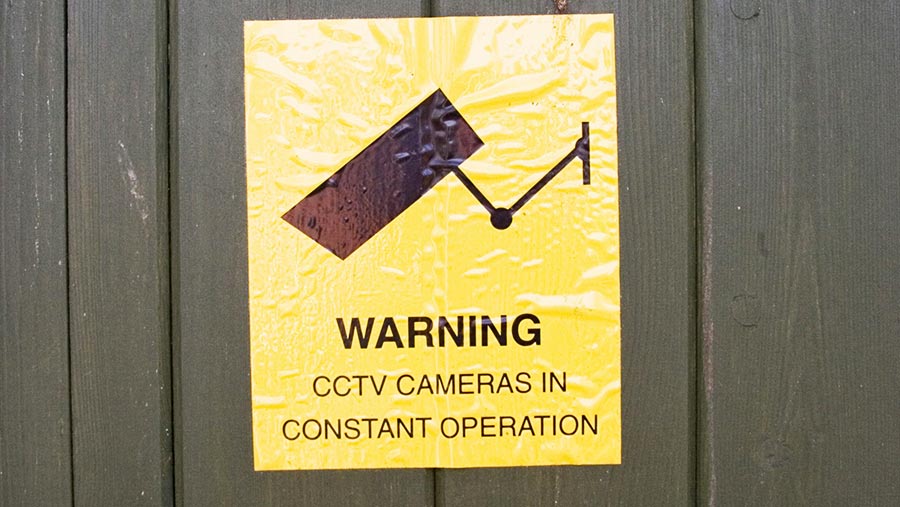Q&A: Using CCTV – what farmers need to know
 © FLPA/REX/Shutterstock
© FLPA/REX/Shutterstock Farmers are increasingly turning to CCTV to protect their farm from thefts. New technology has made it easier than ever to set up camera surveillance, but the rules around data protection and human rights are much more complex.
We shed some light on the most common questions about using CCTV on farms in this Q&A.
Legally can farmers use CCTV to protect their property?
Yes, farmers can use CCTV to protect their property. However, they must carefully consider the purpose for which they are using it in order to ascertain what rules they must comply with.
The main piece of legislation governing the use of CCTV is the Data Protection Act (DPA) 1998, which applies if the CCTV is being used for business rather than purely domestic purposes.
But many farmers live and work on the farm, so do business or domestic rules apply
If the CCTV is being used only for home security purposes it would be exempt from Data Protection principles.
However, the likelihood is that CCTV on a farm is there to protect livestock, machinery and other high value business assets, as well as the farmer’s personal possessions.
Therefore, the use of CCTV is likely to stretch beyond domestic use even though it is the farmer’s home. Best practice would be to treat all CCTV on the farm as if it is being used for commercial use.
Can cameras be hidden?
No, it is most unlikely that covert surveillance would be acceptable. People must be made aware that they are in an area where CCTV is in use.
The best way to do this is to use signage to let people know that they are in an area where CCTV is being used and why. For example, by erecting a sign that says CCTV is in use for the purposes of crime prevention and safety.
What about using CCTCV on boundaries with public roads, public footpaths or a neighbour’s property?
CCTV cameras should be located to minimise viewing spaces that are not intended to be recorded, for example, other people’s property.
Care should be taken to ensure that cameras are angled appropriately and do not capture unnecessary images.
Farmers should also be aware of the Human Rights Act 1998, which gives the right to family and private life. If you’re using CCTV, consider other people’s rights under the act as well as your own; for example, is it facing a neighbouring property?
Can amateur CCTV footage be used in court to secure a conviction?
Yes it can, but there should be a clear audit trail to show where the footage has come from and when.
The farmer should also ensure that he has complied with the rules of the DPA such as placing signs in the areas of use to ensure that no objections can be made to the footage that has been recorded.
Does the farmer need to notify any regulatory bodies about its use of CCTV?
Yes, they’ll need to formally notify the Information Commissioner’s Office (ICO) describing their use of personal data.
Many farms will already be registered with the ICO for trading purposes, but if you introduce CCTV you will need to update your existing data protection registration to record this fact.
The cost of registration is £35 per year and needs to be renewed annually. The registration form can be downloaded from ico.org.uk
What about sound recordings?
CCTV should not be used to record conversations. This is highly intrusive and will more than likely be unjustifiable. Where there is a facility for sound recording, care should be taken to turn it off.
Is there anything else farmers should know?
If farmers use CCTV there could be potential employment consequences as farm employees would presumably be monitored during their hours of work.
If the use of CCTV is purely to prevent and detect crime then the CCTV should not be used for monitoring workers. Employees should be made aware that there is CCTV in operation and its purpose.
Thanks to barrister Laura Thomas who leads the corporate criminal defence team at Birketts LLP for supplying the advice.
This article was originally published 18 June 2013. It provides only a general summary and is not intended to be comprehensive. Specific legal advice should be taken in any individual case. Law covered as at June 2013.
You can find out more about using CCTV in your business on the government website.

